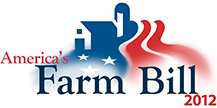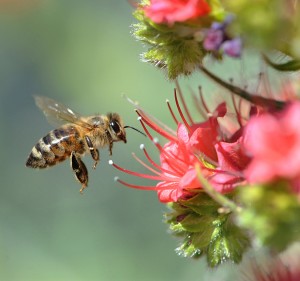Nearly 150 farm-to-consumer marketing projects across the country have received funding under the U.S. Department of Agriculture’s Farmers Market Promotion Program (FMPP), including 19 projects in California drawing total funding of more than $1 million. CDFA Secretary Karen Ross is applauding the diversity of this year’s awardees and a rise in urban projects.
“The diversity of funded programs is critical for the benefit of as many Californians as possible,” said Secretary Ross. “This ensures that funding coming into our state is money well spent and helps us achieve access to healthy, safe California-grown food for all Californians. That’s a goal of Ag Vision, our broad stakeholder partnership to plan for the future of agriculture.”
Nationally, over 40 percent of projects funded by FMPP this year serve one or more food deserts, denoted by a lack of access to healthy foods in low-income area, and another 20 percent will be implemented in communities with a poverty rate of 20 percent or higher. Additionally, the funding includes an emphasis on Electronic Benefits Transfer (EBT) projects, and improvements in transportation and delivery methods, purchase of refrigeration equipment and improvements to packaging and storage that facilitate food access.
Among the California projects selected this year are:
• Round Valley Indian Health Inc., which will develop a program to provide locally-raised products to schools in Covelo, Calif., through a CSA.
• The Pacific Coast Farmers Market Association, Concord, CA, to start new and existing EBT projects at two new farmers markets in East San Jose, CA.
• Thai Community Development Center, Los Angeles, CA, to establish the East Hollywood Farmers Market, which will promote healthy diets, create jobs, and expand access to fruits and vegetables for low-income individuals.
• The Boys Republic, Chino Hills, CA, to: 1) help urban consumers and low-income families gain access to healthy food by accepting EBT benefits, 2) train youth, 3) create new farmer/vendor jobs, and 4) promote consumption of locally grown fruit and vegetables at Chino Hills Farmers Market and a farm/school roadside stand.
• The Ecological Farming Association, Soquel, CA, to: 1) organize and
facilitate 10 direct marketing workshops at the 2012 EcoFarm Conference, to include starting CSA’s and marketing to low-income families; 2) provide 50 scholarships for beginning and socially disadvantaged farmers to participate in the conference; and 3) conduct outreach and consumer training to school groups on farming, nutrition, and healthy eating.
California leads the nation with more than 750 certified farmers markets – sales venues for certified agricultural producers selling healthy and high-quality produce directly to consumers. These markets are now part of the fabric of many communities throughout the state. Furthermore, farmers markets are an important source of fresh produce to many seniors and low-income families who can purchase fruits and vegetables through the Senior Farmers Market Nutrition Program; the Women, Infants and Children’s (WIC) Supplemental Nutrition Program; and the CalFresh program.
Since its inception in 2006, the Farmers Market Promotion Program has awarded more than $23 million across the country to support direct producer-to-consumer marketing and local food projects. Projects are expected to be completed within 24 months of initiation. The full list of awards granted for fiscal year 2011 is available at http://www.ams.usda.gov/AMSv1.0/FMPP.
 California has submitted recommendations to Congress on the upcoming Farm Bill – to inform discussions of the Joint
California has submitted recommendations to Congress on the upcoming Farm Bill – to inform discussions of the Joint


